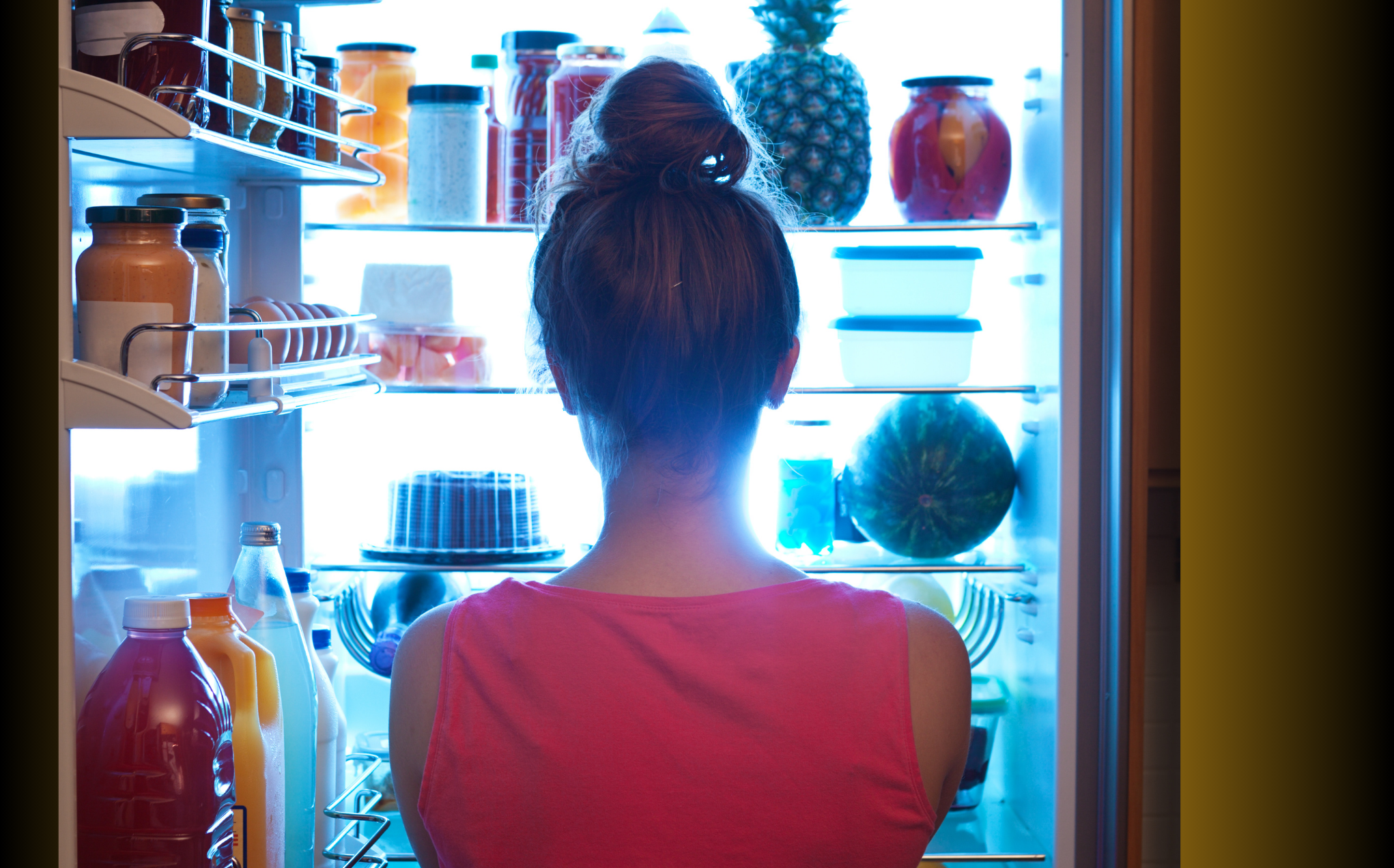
You’re winding down for the night, the day is finally quiet… and suddenly you’re standing in front of the fridge at 9:30 PM wondering how you got there.
If that sounds familiar, you’re not alone—nighttime snacking is one of the most common nutrition challenges we hear about at the Transformation Center.
Here’s the thing: in most cases, it’s not because your body truly needs fuel.
It’s usually a mix of biology, habit, and environment—and once you understand what’s driving it, you can start taking back control.
Why Nighttime Snacking Happens
- Undereating during the day—especially protein
If breakfast was rushed, lunch was light, and dinner was “whatever was quick,” your body might be playing catch-up at night—especially on protein and total calories.
Your hunger hormones (ghrelin and leptin) can go into overdrive, making late-night cravings feel urgent and hard to ignore. - Boredom or stress
After a long day, your brain is wired to seek comfort.
Carbs and sweets in particular light up the reward centers in your brain, releasing dopamine—the feel-good chemical. It’s not “just willpower” at play here; it’s literally brain chemistry. - Habit loops
If “TV time” has always meant “snack time,” your brain now links the two.
Just like Pavlov’s dogs drooled at the bell, your brain starts anticipating food when you settle in for Netflix—whether you’re hungry or not.
What to Do About It
- Front-load your fuel
Start your day with balanced meals that include 20–30g of protein and some fiber-rich carbs. This keeps blood sugar stable, reduces cravings, and prevents the late-night calorie catch-up effect. - Set a “closing routine”
Stores have closing hours—and so should your kitchen.
Brush your teeth, brew a cup of herbal tea, dim the lights. These cues signal to your brain: We’re done eating for today. - Change the snack, not just the habit
If you’re genuinely hungry, go for a protein-rich option—Greek yogurt, cottage cheese, or a small protein shake. You’ll feel more satisfied and are less likely to overeat than if you go for chips or cookies. - Disrupt the trigger
If snacking is tied to watching TV, swap in a “replacement behavior.”
Try stretching, knitting, folding laundry, or sipping flavored sparkling water. Giving your hands and mouth something to do can break the automatic loop. - Manage your stress before it hits
Daily movement, short walks, and even 5 minutes of deep breathing in the afternoon can lower the stress that drives nighttime eating.
Remember, the goal isn’t to cut yourself off from the foods you love, in what feels like nothing short of a battle to get through the cravings..
It’s to set your body up for success during the day and rewire your nighttime cues so snacking becomes a conscious choice, not an autopilot behavior.
At the Transformation Center, we help clients just like you create lasting habits that support their goals—whether that’s improving energy, losing weight, or simply feeling better in their own skin.
Small, consistent changes over time make the biggest difference… and sometimes that starts with shutting the kitchen down after dinner.

Recent Comments